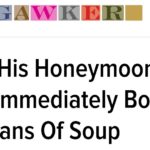Eight essential episodes for any early 90s children’s cartoon:
1. The “Say No To Drugs” episode where the censors wouldn’t let us make any reference to what recreational drugs actually are or what they do, so the plot ends up awkwardly skirting around its own ostensible subject matter. Also, the kid peddling the drugs is the only visibly Latino character in the whole show.
2. The “Racism Sucks” episode where the role of black people is played by a vaguely offensive stand-in, like space aliens or sewer mutants or something. The character who ends up being called upon to “break the cycle of hatred” is a member of the oppressed minority, because heaven forfend we imply any sort of personal responsibility on the part of our presumptively white viewers.
3. The “Keeping Secrets Is Bad” episode where the protagonist spends the whole time creeping about like he’s desperately trying to hide a situationally inappropriate erection. The episode tries to frame a moral about the value of honest communication, but completely undermines itself by having the secret turn out to be something really trivial.
4. The “Young Love” episode where we’re not allowed to acknowledge that twelve-year-olds have sex drives, so the male lead’s infatuation plays out as this chaste, courtly thing that our target audience can’t relate to at all. When the object of the protagonist’s affections inevitably proves unreceptive, his decision to respect her refusal is framed as a noble moral sacrifice on his part.
5. The “Stranger Danger” episode that plays out as a bizarre parable about creepy old men lurking in bushes, because acknowledging the fact that virtually all children who are sexually assaulted are victimised by adults they already know and trust didn’t play well with the focus groups. Also, we’re not allowed to even hint at what the creepy old man wants to do, so there’s never any sense that anyone is actually in danger.
6. The “Everybody Get Along” episode where a secondary character attempts to bow out of a group activity that they find difficult or upsetting, and spends the next 22 minutes being relentlessly badgered and humiliated for having the temerity to prioritise their own emotional well-being over the will of the group.
7. The “Disability Is Inspiring” episode where a character who’s in a wheelchair for some unspecified reason teaches the group an important lesson about perseverance in the face of adversity. Though all of the regular cast treat her like an old friend, this is the only episode in which she appears.
8. The “Multiculturalism Yay” episode where the token African-American character saves the day with the Power of Blackness, by which we mean an awkwardly rhymed hip-hop verse written by a middle-aged white guy.


